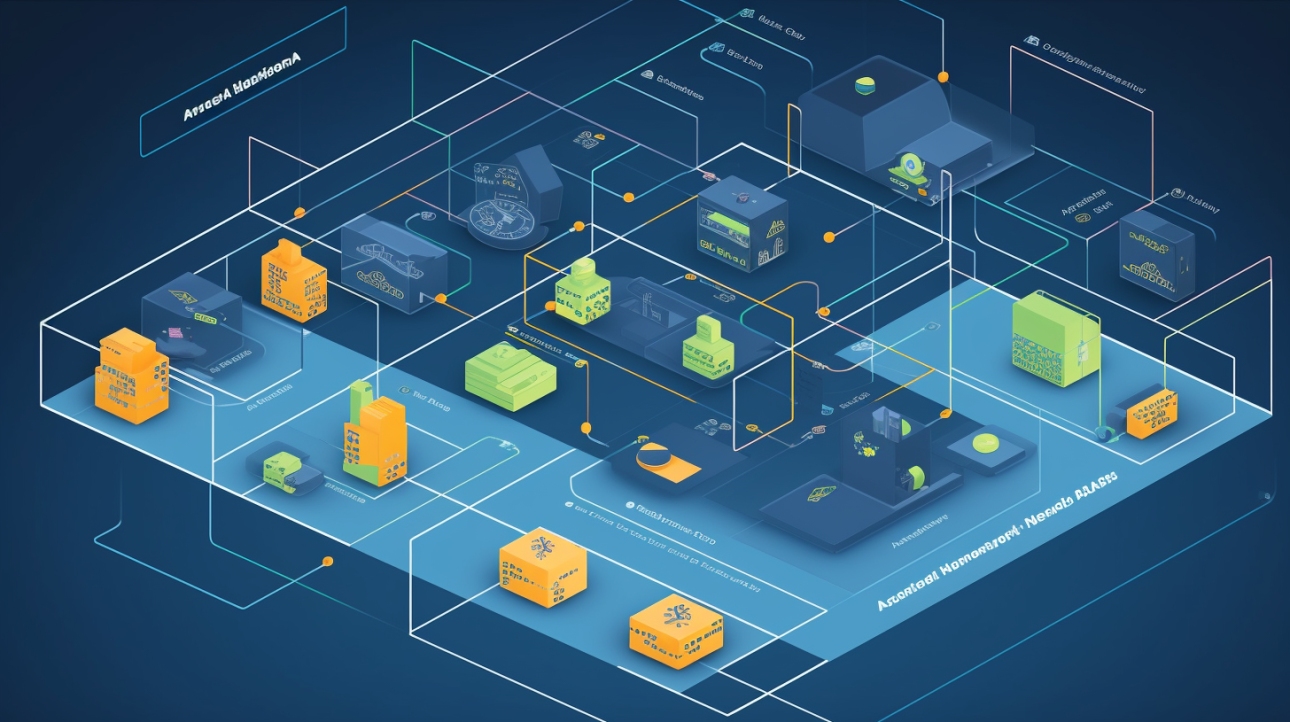Data engineering is a rapidly growing field that plays a critical role in today’s data-driven world.
Data engineers are the architects behind the systems that collect, process, store, and manage vast amounts of data, making it accessible and usable for data scientists, analysts, and business decision-makers.
By learning data engineering, you’ll gain highly sought-after skills that can propel your career in technology and empower you to build robust and scalable data solutions.
Finding the right data engineering course, however, can be a challenge.
You want a program that not only covers the foundational concepts but also provides hands-on experience with industry-standard tools and technologies.
You’re looking for a course that can equip you with the practical skills needed to succeed in this competitive field.
That’s why we recommend the Data Engineering with AWS Nanodegree as the best overall data engineering course on Udacity.
This comprehensive program provides in-depth training on AWS cloud technologies, data modeling, data warehousing, Apache Spark, data pipelines, and more.
You’ll gain hands-on experience through real-world projects and learn from industry experts, preparing you for a successful career in data engineering.
While the Data Engineering with AWS Nanodegree is our top pick, we understand that you might have different needs or preferences.
So, keep reading to explore other excellent data engineering courses on Udacity that cater to various skill levels and focus areas.
We’ve compiled a list of top-rated programs to help you find the perfect fit for your learning journey.
Data Engineering with AWS Nanodegree
This Udacity Data Engineering with AWS Nanodegree equips you with the skills to become a data engineer proficient in AWS cloud technologies.
You start with the fundamentals of data modeling, exploring both relational and NoSQL databases like Apache Cassandra, known for its scalability.
You delve into the world of cloud data warehouses, understanding how to use ELT (Extract, Load, Transform) processes to manage data within AWS services.
You then explore Apache Spark, a powerful tool for handling large datasets.
You discover how to use Spark within the AWS ecosystem to build data lakes, gaining practical experience with ingesting, organizing, and analyzing real-world data, such as the STEDI Human Balance Analytics project.
This hands-on experience solidifies your understanding of Spark’s capabilities.
The course guides you through automating data pipelines using Airflow, a popular tool for managing complex data workflows.
You learn how to connect Airflow with AWS services like S3 and Lambda, building efficient and reliable pipelines.
The program emphasizes data quality, teaching you how to ensure data accuracy and build production-ready pipelines capable of handling large volumes of data.
Finally, you receive valuable career advice, learning how to optimize your LinkedIn and GitHub profiles to attract potential employers.
This guidance helps you showcase your newly acquired data engineering skills and stand out in the competitive job market.
Data Engineering with Microsoft Azure Nanodegree
You will start by learning how to design data models, understanding both relational and NoSQL approaches.
You will even work with Apache Cassandra, a popular NoSQL database.
With this foundation, you will dive into building cloud data warehouses directly on Azure.
You will work with powerful tools like Azure Synapse Analytics and Azure Data Warehouse.
You will apply this knowledge by creating a data warehouse for real-world bike share data.
The course then introduces the world of data lakes and lakehouses.
You will explore the big data ecosystem and learn to use Spark for data wrangling and analysis.
You will become comfortable with Azure Databricks, a platform for working with big data.
This culminates in building a fully functional data lake on Azure, once again using the bike share dataset.
Finally, you will discover how to create data pipelines using Azure Data Factory.
You will learn how to connect different data sources, transform data, and make sure your data is accurate.
You will understand how to deploy these pipelines in real-world settings.
To solidify your learning, you will get hands-on by building data pipelines to analyze NYC payroll data.
Throughout your journey, you’ll benefit from the guidance of experienced instructors with backgrounds in data science, distributed databases, and building analytics solutions.
The course doesn’t just focus on technical skills; it also provides career support.
You can get help with your resume, improve your LinkedIn profile, and make your GitHub profile shine for potential employers.
Data Architect Nanodegree
This program helps you develop the skills needed to become a data architect, a highly sought-after role in today’s data-driven world.
The program begins by establishing a strong foundation in data architecture.
You’ll explore relational databases, the backbone of many data systems.
You’ll also discover how to design a physical database schema, similar to creating a blueprint for organizing data.
You’ll then apply this knowledge to a practical scenario by designing an HR database for a company.
As you progress, you’ll delve into the fascinating world of big data, learning about its unique characteristics and challenges.
You’ll explore different frameworks used for managing massive datasets, including how to ingest, store, and process them effectively.
The program introduces you to NoSQL databases, a popular choice for handling large, unstructured datasets, and guides you through building a scalable data lake architecture.
This comprehensive approach ensures you gain hands-on experience with the latest technologies and methodologies used in the industry.
The Data Architect Nanodegree doesn’t just focus on technical skills; it also emphasizes the importance of data governance.
You’ll learn how to manage data responsibly by implementing practices for metadata management, data quality, and master data management.
A case study about SneakerPark, a fictional company, provides real-world insights into how data governance works in practice.
Finally, the program helps you prepare for your job search by offering guidance on optimizing your LinkedIn profile to attract potential employers.
You’ll discover how to showcase your newly acquired skills and stand out in the competitive job market.
SQL Nanodegree
This Nanodegree equips you with the skills to manage and analyze data effectively.
You begin by mastering SQL, the core language for interacting with databases.
From basic queries to joining tables and using aggregate functions, you’ll learn to extract meaningful insights from data.
The course goes beyond the basics, covering advanced techniques like subqueries, temporary tables, and window functions for complex data manipulation.
You also discover how to clean and optimize queries for better performance, essential skills for handling large datasets.
You then dive deeper into the world of databases, exploring both relational and non-relational systems.
You learn about data normalization, a technique for structuring data efficiently, and how to use DDL commands to create and modify database structures.
DML commands become your tools for manipulating data within those structures.
You’ll understand the importance of constraints in ensuring data integrity and explore how indexes can speed up data retrieval.
Finally, you’re guided on how to leverage LinkedIn, a powerful tool for networking and career advancement in the data industry.
This guidance provides a practical edge as you seek opportunities in the field.
Data Streaming Nanodegree
This Udacity Data Streaming Nanodegree equips you with the latest skills for real-time data processing.
You start with an introduction to stream processing and Apache Kafka, learning about data schemas and how to use Apache Avro for defining data structure.
You then discover how to use Kafka Connect and REST Proxy to integrate your data sources with Kafka.
Next, you’ll dive into stream processing fundamentals, exploring concepts like windowing and aggregation.
You’ll learn to build real-time applications using tools like Faust and KSQL.
This knowledge translates into practice through a real-world project, optimizing public transportation systems.
Instructor Ben Goldberg’s experience building a data engineering team at SpotHero using Airflow brings valuable real-world context to this section.
The course then shifts to building streaming APIs using Spark SQL, where you’ll explore dataframes, views, joins, and working with JSON data.
You’ll learn to use Redis, Base64, and JSON to work with data stored in Redis.
This culminates in using Spark Streaming to evaluate human balance data.
Judit Lantos, a Senior Data Engineer at Netflix, brings her expertise in building data pipelines to enrich this section.
Finally, the program helps you optimize your LinkedIn and GitHub profiles to showcase your newfound skills to potential employers, preparing you to land your dream job in data engineering.
Data Structures and Algorithms Nanodegree
You’ll start with a Python refresher to solidify your foundation before diving into core concepts.
The curriculum covers a wide range of data structures, including arrays, linked lists, stacks, queues, trees, maps, and hashing.
You’ll learn to implement and manipulate these structures efficiently—a crucial skill for any data engineer.
You’ll explore various algorithms, from basic sorting methods to advanced concepts like greedy algorithms, graph algorithms, and dynamic programming.
These algorithms are your tools for solving complex problems efficiently, a skill highly valued in data engineering.
Python libraries like NumPy and Pandas are also covered, providing you with the tools to work with and analyze data effectively.
You’ll work through over 100 hands-on exercises, putting your knowledge into practice and solidifying your understanding.
A dedicated mentor provides guidance and support throughout your learning journey, answering your questions and offering personalized feedback.
You’ll also learn how to optimize your LinkedIn and GitHub profiles, essential platforms for showcasing your skills and connecting with potential employers.
Also check our post on the best Data Engineering courses on Coursera, our post on the best Data Engineering courses on Udemy.






